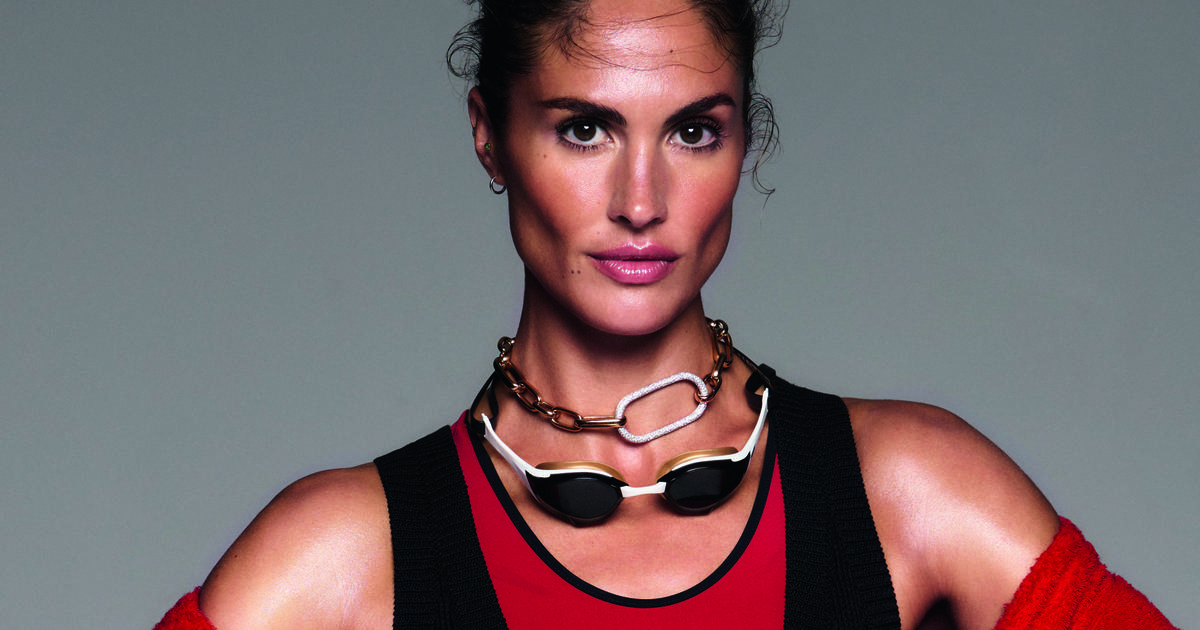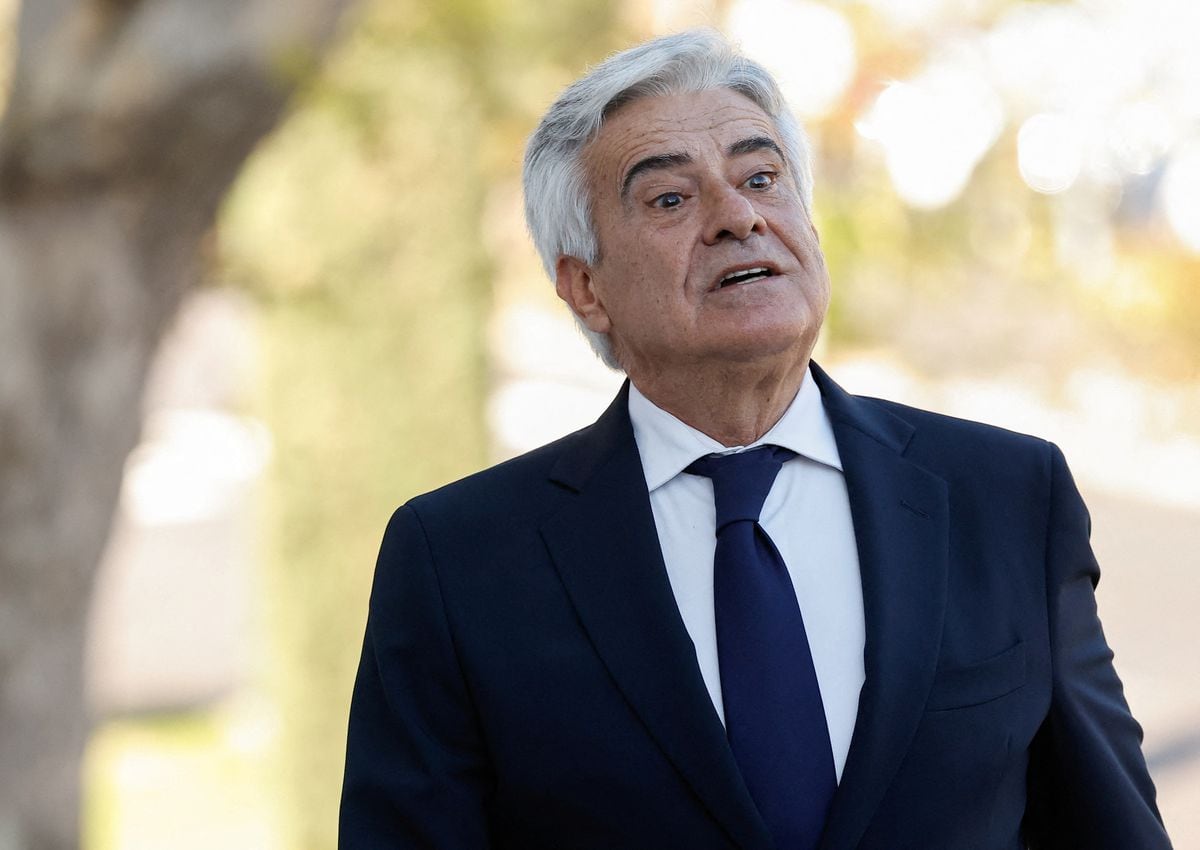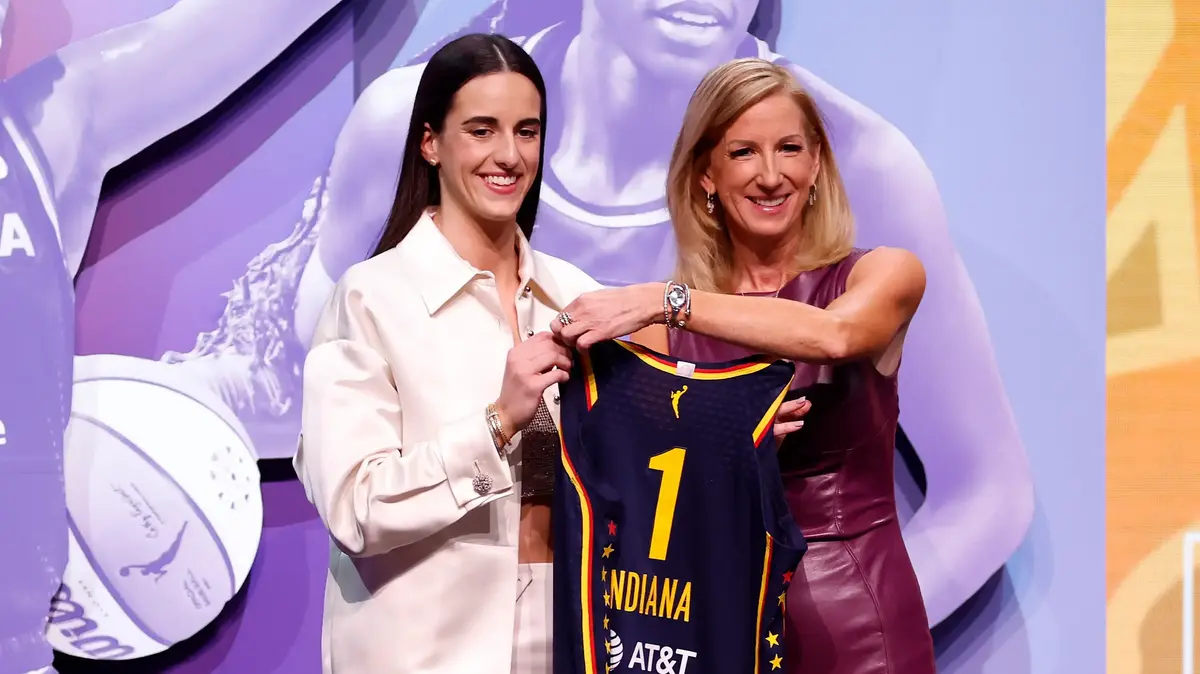Mario García Romo has barely been in Madrid, who this Wednesday, February 22, will fight on the indoor track of Gallur with Mo Katir to win and to break the Spanish record of 1,500m (3m 33.32s by Andrés Díaz for 24 years ), and prepares himself by rolling along the banks of the Manzanares towards the Casa de Campo and on the CAR tracks together with his teammate, the North American record holder of the 1,500m, the mile and the 3,000m Yared Nuguse, and knows the Retiro no for running through its trees like hundreds of
runners
fans but because he walked as a child on a visit from his school to the Prado Museum.
He lives and trains in Boulder (Colorado, United States), sharing an apartment with other members of the On Athletic Club (OAC), a select group trained by Dathan Ritzenheim.
He has cut his hair like a soccer player, with faded temples and curly bangs.
He has decided not to run the European indoor track in Istanbul (March 3-5), in which he would be a favourite, so as not to annoy his preparation for his big goal, the outdoor World Cup in Budapest, in August.
He does not hide ambitions from him.
“I'm not afraid to say 'I want to be an Olympic champion,'” he says.
"If you don't dare to say it, it's perhaps because you don't feel capable of it."
On his nightstand, a book,
The art of racing in the rain,
a novel by Garth Stein, in which the narrator is
Enzo,
a dog, and which has replaced
The Hobbit
, by JRR Tolkien, who entertained his walks during the European Championship in Munich in which he was third, after Jakob Ingebrigtsen and Mo Katir , in the 1,500m.
Ask.
In two indoor races this winter, in Boston and New York, he has run a 3,000m in 7m 34.74s and has broken the national mile record (3m 51.79s).
Has the training gone well?
Answer.
Before competing I already knew that I had improved a lot, because I have noticed that in training I have gained much more resistance.
The goal this winter was to do a lot of load, more volume.
And it's not like he's done much more volume than last year, but he's been more consistent by not competing as much.
Before 3,000m I already knew that I could improve my personal best.
I did 7.34, a pretty good time, but I still wasn't happy with it, and also in the mile I wanted to set a better time.
Q.
Self-criticism?
A.
It takes me a bit to get used to not competing so much, because in college [Ole Mississippi] I competed a lot [17 races from 800m to 5,000m last winter and spring] and the training was not so intense, but here, with the OAC , it's the other way around.
More intense training, less competition.
You have to find a bit of balance.
Q.
Did you compete before more to win than to find a brand?
Is running to break records any different?
R.
It is a different mentality.
That's the mistake I made on the New York mile.
I went out for a while, and that's why I went out so fast, but if you're going for the win, you're going to get that good time for sure.
Running like this, it is true that I helped a lot to the people who were in the race [his roommate Nuguse broke the United States record], but I have to go more for the victory.
Q.
How is your life in Boulder?
R.
I get up at seven, have breakfast, read, relax.
I go out to train.
Long session in the morning.
Meal.
emails.
Respond to people.
And a second session before the sun goes down.
And then relax.
Some movie.
Something that is not very intense, but that makes you enjoy.
Prepare dinner and go to bed.
I try to take a nap too.
People think that we have a lot of time, but in reality, if you are training and you are cooking proper food and preparing things, you don't have that much time.
And I have a list of books that I am going to read in the next year.
Q.
You are one of the few Spaniards who has gone to the United States and has stayed there as an athletics professional.
Was he already predisposed or did he let himself be won over?
R.
I went with the idea of not only taking advantage of the scholarship to study at a university but also having the opportunity to be a professional there.
Most of the professional groups in the middle and long distance are in the United States.
There is none in Europe.
There are training centers and individual professionals here.
I wanted to be part of a group, because even if it's an individual sport, that's how you improve.
And now, for example, I am lucky enough to train with Nuguse and Hoare, two of the best 1,500m runners in the world.
They are my rivals, but on a day-to-day basis, by training together we benefit each other.
That, later, gives you the opportunity to participate in international championships.
Q.
Do you feel freer there to set goals and the path to achieve them?
R.
I outlined my goals with Dathan, my coach.
In the world of athletics, the most important thing is always outdoors.
It has always been like this.
Being the World Cup so late, and also being my first year as a professional, Dathan had the idea that we had to train more.
You have to prioritize that.
By risking to go to competitions such as the European indoor and the National, which add four more races [semifinals and finals] to the process, you are already touching the preparation for March, April and May, which is when we accumulate kilometers.
You unbalance the balance.
The athlete Mario García Romo.Claudio Álvarez
P.
2023 is also a pre-Olympic year.
Are you already focusing your preparation thinking also about Paris 24?
A.
Sure.
We do not say that the Olympic Games are next year, we say that they are in 17 months.
We are also working towards that, not only on this year's objectives.
We want a normal progression.
In the end, whether you like it or not, when you compete you have to reduce the volume a lot and that is bad for the body.
You have to try to get him used to a high volume, and that's where we are.
Q.
How many championships can be prepared in a year?
R.
Many people say that everyone.
There are athletes like Jakob Ingebrigtsen who run everything, or sprinters, with events that do not require the same volume of training and benefit from competition.
Q.
And the Norwegian is a phenomenon... At the age of 22 he is an Olympic champion, a world champion, a six-time European champion, a world record holder in the 1,500m indoor track (3m 30.60s)...
A.
He is an alien, so to speak.
Q.
Since I was four years old doing volume, one could say...
A.
Your training method allows you to participate in many different events.
That is why he can participate and win in the 1,500m and 5,000m outdoors.
We see that one of the best Spanish athletes in history, Adel Mechaal, can double but not fight for victory in both events.
It is something that is only available to Jakob, right now.
Q.
Do you envy Jakob, with an obsessive father as a coach, star of a
reality show
since he was a child, always running with his older brothers?
R.
It's not to envy him, no, but we would all like to be Olympic champion and world champion.
Q.
And pay that price for being one?
R.
It is a question of priorities.
He was criticized a few years ago because in minor categories he dominated so much and it was considered that he trained a lot, but in reality time has proved him right.
He is one of the best athletes in history.
I have a lot of respect for him and I always will because he has worked a lot for it.
I believe that his successes are not so much a consequence of his talent as of what he has worked on over the years.
Q.
A very monotonous life, isn't it?
R.
A very intense and demanding life.
Many people would not consider her for his children, but it was his decision, his father's and his brothers' decision at the time, and he has given her a lot too.
Q.
Do you think 24 hours a day about athletics?
R.
You have to have a balance.
It is very important not to think all the time, but at the same time keep it in mind.
It's not so much thinking about athletics as turning your whole life into the life of an athlete.
Sleep, take care of yourself, have a healthy life, so to speak.
Which is what I like, too.
If I had to retire next year, I would maintain the same lifestyle.
Q.
But isn't it more and more extreme, not just a monk's life but a controlled life, measuring the calories, the hydrates, the proteins in the diet;
a ring to measure heartbeat and see if he recovers in his sleep, always connected to a trainer that analyzes data from private life...?
A.
Yes, yes, yes.
Obsession is shown to be healthy up to a certain point.
For example, people would be surprised at my partner Yared [Nuguse], how little he considers food, or the things he does on competition day.
I've seen him drink a gigantic milkshake the day before competing.
It is more important to also be happy, to have a lifestyle that you like, the one you would have even if you were not an athlete.
That is the key to being a good athlete.
Q.
Is he your guide?
R.
I, being a cadet and youth, was a bit obsessed with that lifestyle, and measured everything.
I remember that at the age of 13 I even measured the amount of water I drank before a competition... It wasn't such a big obsession.
It was because in the end you don't have anyone to tell you those things.
But little by little you are realizing it.
In the end it is also maturing as an athlete.
Q.
But that detail also reveals a perfectionist mentality, already a professional, at the age of 13...
R.
I still have that mentality because it is my lifestyle, it is what I like.
I don't like going to McDonald's or Burger King every day.
I allow it from time to time, but in reality when I feel better it is eating healthy and getting enough sleep and instead of going out to party, going to do something in the mountains.
It seems more productive to me.
Q.
It seems as if as a child in your town, instead of dreaming of being an astronaut, you already wanted to be a professional athlete when you were older...
A.
I decided that I wanted to be an athlete many years ago.
When I started in athletics, I always thought about the most important athletes of the moment, and I wanted to be like them.
He was quite talented from a very young age.
In the first races in which I began to compete, I always started as hard as I could from the beginning and I was already alone from the beginning.
Since I started, it's not that I realized it, but the people around me knew that I had a little more talent.
Q.
It may not be an obsession, but your life is also guided by your goals...
R.
A record from Spain, an Olympic gold...
Q.
Are you clear about what you want and that it will cost you a lot?
R.
I'm not afraid to say, I want to be an Olympic champion or I want to break the Spanish record or I want to be a world champion...
P.
Most athletes can think about it but they don't want to say it out loud in case they don't come and ask them to account...
R.
It is not to say it out loud, but you have to be able to say it without being afraid.
If it causes you fear, it is because you do not think you are capable of achieving it.
I am always going to say my objectives, and not so that people know them, but because I am sure of them.
It's what I'm working on.
More than the result I am focusing a lot on the process.
If I am able to do my best every day, and do the training sessions my coach sends me, follow the path that he has designed, when that moment comes, even if I finish second, I will be happy with it.
You have done everything possible for it.
It's the mentality I have right now.
Q.
Being in the United States for most of the year it will be more difficult for you to achieve much popularity in Spain, perhaps...
R.
I don't think athletes do things for fame.
It's something I do because I like it.
I don't want to be an Olympic champion because of the fame it brings.
I want to be an Olympic champion because I want to be.
But, well, I like coming to compete in Spain.
I also like to feel that I am Spanish and that I represent Spain.
Q.
But it would be good if your deeds had more impact, right?
R.
What I would like is to have more impact on lower category athletes here in Spain.
I have also been a cadet, youth, junior athlete, and I paid close attention to Spanish athletes.
I want to have a positive influence on those athletes.
Maybe I go a little more unnoticed, right? But, well, I think I try to make myself noticed when I compete in Spain.
Even though I live in the United States, I consider myself Spanish, and people ask me if I would try to get US citizenship, and I answer, no, no, I am Spanish.
Q.
The best marks are now achieved in the championships and not in the rallies, as before.
Does the cleanup that anti-doping has done in Kenya influence them?
A.
Yes, yes, yes... It is something necessary, even sad, just like in Spain the biological passport... it requires regulation and it is a problem that it is not regulated, and that the cases of the past have been covered up and do not go away to open.
I hope that in the future it will be taken into account.
In the end, the fact that a Spanish athlete tests positive calls into question everyone's results.
That's the problem.
Not everyone is like that.
There must be regulations so that as much as possible is sanctioned.
Q.
In Spain, after Operación Puerto and the case of Marta Domínguez and Operación Galgo, athletes born at the turn of the century arrived with a different head, a clean look, right?
R.
It is very important that there has been a lot of education against doping.
And also, now technology, the shoes, is helping us a lot to recover, so that we can run in very good times.
It is also part of athletics to improve products and release less harmful shoes that allow you to train more.
One of the main reasons why there is so much running is because people don't get injured as much now.
If a person who did not have continuity is capable of training two years in a row, it is much better.
You can follow EL PAÍS Deportes on
and
, or sign up here to receive
our weekly newsletter
.
Subscribe to continue reading
Read without limits
Keep reading
I'm already a subscriber


/cloudfront-eu-central-1.images.arcpublishing.com/prisa/OKQ7LBG6GZA7HMM36QXFGZTINA.JPG)


/cloudfront-eu-central-1.images.arcpublishing.com/prisa/YMKYXE7EWNAC5MC2DH7TJQ7LYE.jpg)







